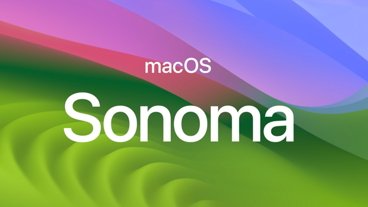Inside High Sierra: Safari's Javascript engine much faster, accursed autoplay videos (mostly) killed
While marquee features like APFS have stolen most of the spotlight, Apple has implemented significant improvements to Safari with the goal of making a user's time with it easier, and less annoying.
Editor's note: This story originally ran in July when High Sierra was in beta. It has been updated and republished for the public release of macOS 10.13.
Javascript improvements
During the WWDC rollout of High Sierra, Apple claimed Javascript is 80 percent faster on the new Safari than it is on Chrome on the same machine. This is all fine and good, but for most Mac users, a better comparison is between Sierra's Safari, and High Sierra's version.
Our test machines are a 2015 MacBook Pro running High Sierra, and a 2016 MacBook Pro on Sierra. Both are i7 machines, with 16GB of RAM. General computing benchmarks are very close, with the 2016 MacBook Pro edging it out just a bit.
This isn't just relevant to High Sierra — iOS users get the improvements too.
We spent a few hours doing timing, and looking at possible vectors of speed or slowdown, and there really wasn't much to glean. In general, it looks like High Sierra's Safari is about 15 to 20 percent faster across the board than Sierra's Safari on a very fast connection.
But, for whatever the reason, most broadcast news websites both consistently load slower on High Sierra's Safari than on regular Safari, but not by much.
Blocking of auto-play videos
Also highlighted to fanfare at the WWDC is Safari's new ability to stop the loud and annoying auto-play video and audio ads from playing. In theory, Safari inspects the content, and just won't load it, with most of the offenders just presenting either nothing in the place of the ad, or a black block.
Most reputable sites don't allow them, and kill them on the spot when they slip through.
In practice, both with ad vendors contracted by sites and the new Safari, a few still squeak through — but it is notably less using High Sierra's Safari than Sierra's version. We hit them daily if not hourly in Sierra, but we've had only a couple blare at us randomly in the new Safari at a smattering of tech enthusiast sites, as well as a news venue now and again.
Auto-play video you actually want is a different matter, though. The aforementioned news sites is a possible exception.
In High Sierra, control over the auto-play block is as granular as users want. A universal stop can be put in place, or it can be enabled or allowed on a site-by-side basis.
We're sure this will be a back-and-forth battle between Apple and the various video purveyors, as it is with any revenue-generating content blocking feature in any browser.
Intelligent Tracking Prevention
Another High Sierra Safari improvement that will irritate ad vendors is Intelligent Tracking Prevention. Apple notes that it now uses machine learning to reduce cross-site ad vendor tracking, which should help with privacy protection.
In Apple's discussion of the matter, it notes that in testing it found popular websites using 70 cross-site trackers, all silently collecting data on users.
According to Apple, Intelligent Tracking Prevention collects statistics on resource loads induced by a cookie, as well as welcome user interactions such as clicks and text entries on a visited site.
Cookies that Intelligent Tracking Prevention considers allowed can be used by third parties for one day after the user last visits the relevant site. After the first day, and out to 30 days, the cookie is partitioned allowing for users to stay logged in and similar positive uses of the technology, but not to harvest information for ad serving and the like. After no willful user visits to a site for 30 days, the cookies are purged.
Intelligent Tracking Protection is possibly the biggest addition to Safari, and the hardest one to quantify. In Sierra, our served ads tend towards repetition, based on search terms we've entered in Ebay, Amazon, or Google.
In High Sierra, we still saw some of this, presumably based on the frequency of those searches, and High Sierra deciding that we were fine with it. But, the mix was far lower, and actually restricted to ad results from the relevant sites, and not other vendors hijacking that information to return its own results.
WebKit, macOS, iOS
This isn't just relevant to High Sierra — iOS users get the improvements too. The improved Javascript engine appears to have been migrated to iOS, but with less improvement. It's still there, but seems to be closer to 10 percent than 15 in our testing.
Personal preferences vary, of course, but from what we've seen so far, the improvements to WebKit in High Safari leapfrog Apple's Safari over Firefox and Chrome.
 Mike Wuerthele
Mike Wuerthele













 Malcolm Owen
Malcolm Owen
 Chip Loder
Chip Loder

 William Gallagher
William Gallagher
 Christine McKee
Christine McKee
 Michael Stroup
Michael Stroup







